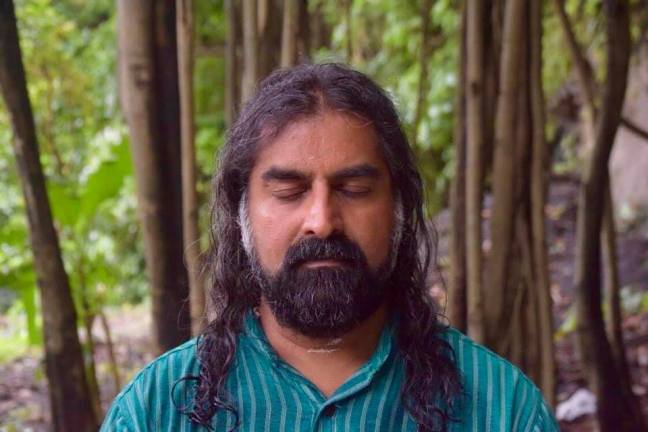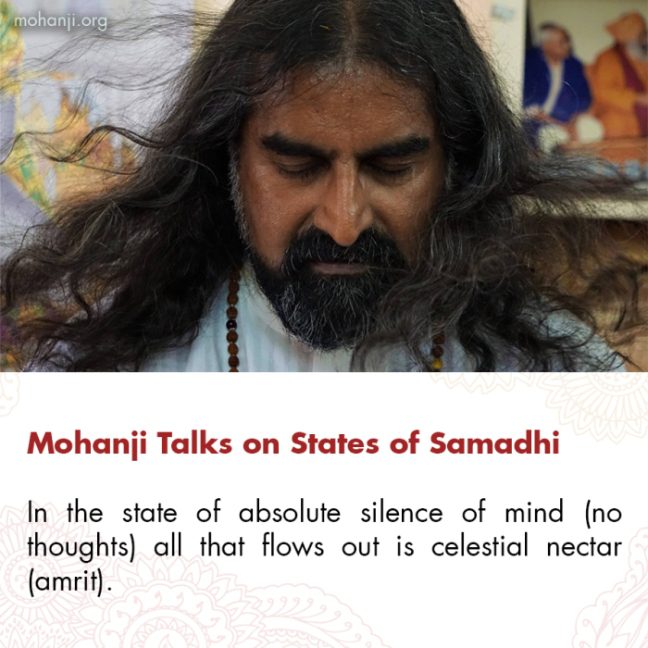What are the different states of Samadhi I Mohanji
Types of samadhi
I’ll give you the states of Samadhi. Samadhi means the state of stillness of the mind.

The first state is: you want something; you get that thing; the mind is still.
The second stage is: you want something; if you get it or don’t get it, the mind is still.
The third state is: you want something, but that thought is not inside you but outside of you, which means it’s like a reflection; you’re already still.
The fourth state is: this thought, because it cannot influence you, dies a natural death. Thoughts die. Imagine the thoughts are these pillars holding this roof. When the thoughts die, the whole mind collapses. The roof is the mind; the mind is held by thoughts. When thoughts die, the mind collapses, which means the mind becomes small, a minimal mind, a basic mind. When that mind collapses, the ego becomes minimal; the intellect becomes minimal; everything becomes minimal, and you become freer. And after that, you’re still aware of the body, but your connection with the body itself reduces.

The fifth stage: when somebody comes to you, you become that person; you don’t exist apart from that. When many people come to you, you become many people; you don’t have an existence. There you start – from one unit, you start expanding to the universe, you start expanding. First is – you integrate into one; then you expand into many. Then, you’re not a unit anymore.
The sixth state: you lose connection with your body because you’re already everything.
The seventh state is a state when you become fully established only in the universe; you’re not even there.
Stillness
Seven stages: perfect completion. These are all stages of stillness, and after the fourth stage, you can’t go back because the mind has already collapsed; the ego has collapsed; the intellect has collapsed; the personality has collapsed. You can’t go back to the state of mind because it has already collapsed.
Transcribed by Ulla Bernholdt
Proofread by Yogesh Pandit

